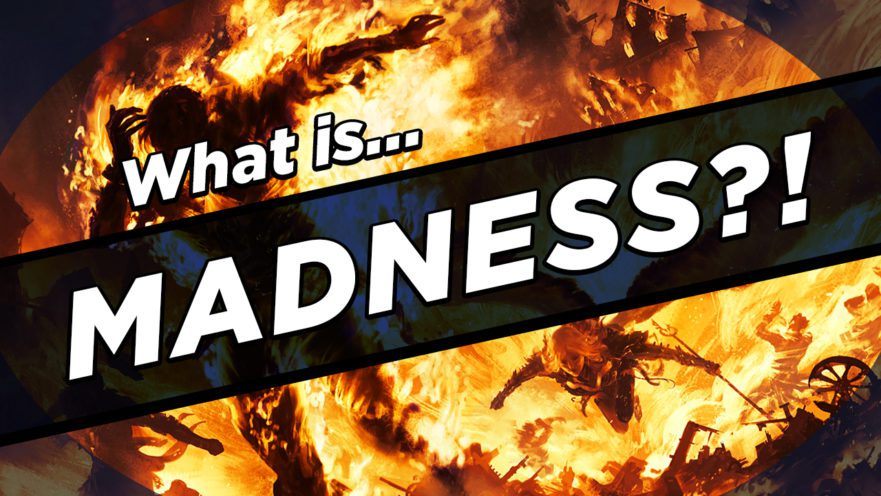Discarding cards can be a pain, but it doesn’t have to be. Today, we cover an alternate-cost mechanic that makes your cards cheaper to cast if you discard them.
If that sounds like madness, that’s because it is!
What is Madness?
Here’s how madness works: If you would discard a card with madness from your hand, you may choose to exile that card from your hand instead. Madness works regardless of why you’re discarding the card — whether you’re drawing and discarding a card, your opponent is casting a discard spell, or you’re discarding to hand size, you’ll still meet the condition for madness.
Once the card is in exile, you can choose to cast it for its madness cost, which is typically cheaper than its mana cost. (You can also choose not to cast the card for any reason; it’ll just go to your graveyard.) Madness ignores normal timing restrictions; any sorcery or sorcery-speed spells immediately go on the stack and resolve as normal. Your opponent can choose to counter the spell, if they want, and after the spell resolves, it goes to your graveyard.
A few notes on madness:
- Taxing effects will affect madness costs, just as they affect other spell costs and alternate costs. So if your opponent has Thalia, Guardian of Thraben in play, be prepared to pay an extra mana for your madness spell.
- Madness does not replace the total mana value of a card regardless of which cost you are using to cast the spell. The mana value is always the value printed at the top of the card.
- There are many reasons why you could discard a card, but you will always need a reason. You can’t randomly choose to discard a madness card.
Madness has appeared in a few sets now, most recently Shadows Over Innistrad, and it can enable some fun strategies. If you enjoy discarding cards more than most, look for some madness cards to add to your decks.

